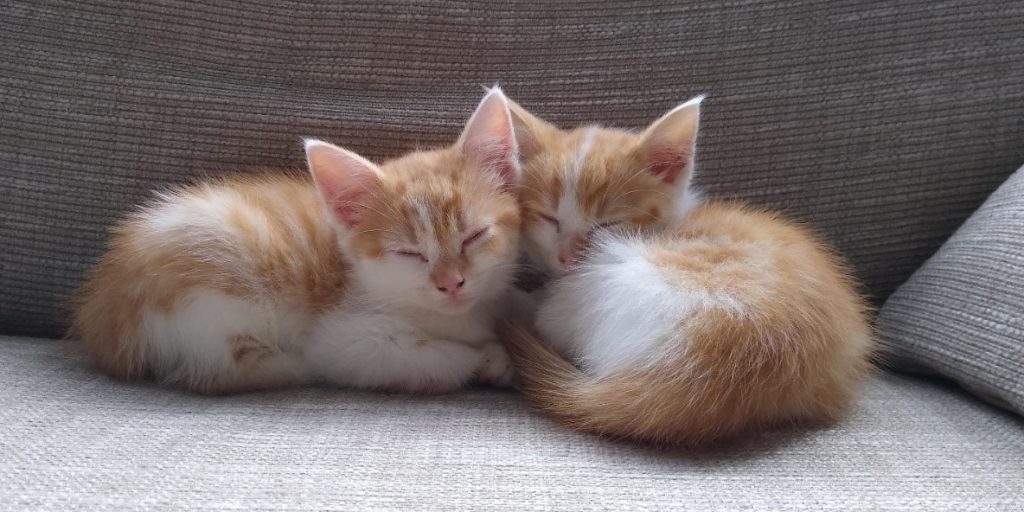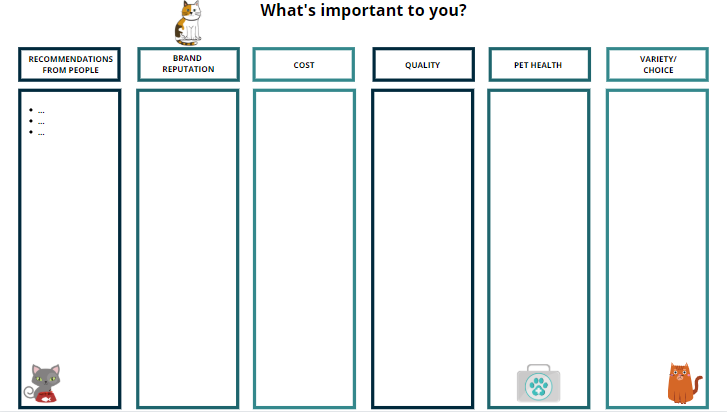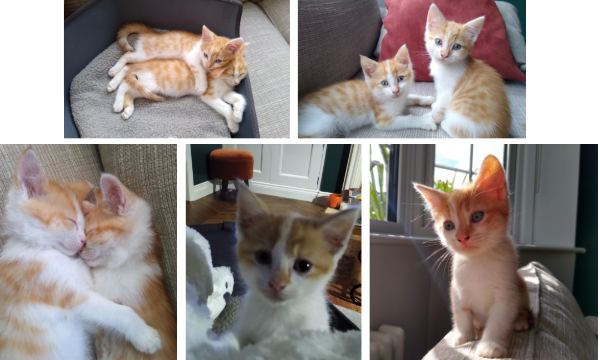“An interview is just having a chat with someone, right? Anyone can do that.”
As researchers, hearing this makes us feel like…

In the Research & Citizen Insight team, whether it’s an interview, focus group, or even a survey, we put a lot of work into developing the research objectives, crafting the questions, and planning something which sets the right tone. Not to mention finding people who actually want to talk to us, and making sure we’re following the right processes.
It's all in the planning
Let’s look at a random example. (I say random, it’s about cats, and I just wanted a tenuous excuse to show pictures of my adorable new kittens. Stay tuned...)
Say you’re the CEO of an up and coming hip new brand of cat food, and you want to boost your sales and increase brand awareness. You probably want to talk to some cat owners about what they look for in cat food, and how you can convince them that yours is the best.
You might get very excited about this and want to go running out into the streets, grabbing anyone that might look like they own a cat and thrusting food samples in their face. You might ask a few questions – “Would you buy this?” “What do you mean, no? Why not? What’s wrong with it?”
You might spend half an hour chatting to someone about their cat, so that you learn all about Mr Whiskers’ toilet habits, but leave wondering how that will help you sell your food.
The point is, talking to potential users of your product or service without proper planning, can prevent you from getting the insight you really need.
A good place to start when planning any research is to find out what’s already been done – talk to colleagues, look online, and explore what research is out there on your relevant topic area.
Whatever type of research or engagement you have in mind, it’s important to consider what your end goal is – what insight do you need, and what are your research objectives?
Thinking through your objectives will enable you to develop questions based around key themes. For example if Mr. CEO needs to understand what might attract people to buy his cat food and how he can best market it, this might involve creating a discussion guide based on exploring what people’s motivations are when they buy cat food, what things are important to them and what factors they consider – e.g. cost, quality, variety of flavours, brand reputation, recommendations from friends or family, health benefits for their cat?

Whatever your reason for engaging with people as part of research, once you break down your objectives you can quickly start to build questions to help gather meaningful insight and inform next steps.
It’s also helpful to test questions out on your colleagues to see what type of language works best, and think about the ordering of questions to help the conversation flow.
You might also want to develop some simple tools to use alongside your discussion guide to help prompt conversations and capture insight where appropriate, e.g. something like this (which can be adapted for research about people as well as cats!):

An interview should be a bit like a targeted conversation – it does take practice, but the most important thing is to keep in mind the key things you are trying to find out.
Finding willing participants
Once you have a format and set of questions you’re happy with, you’ll be keen to get going with finding people to talk to.
With a lot of projects this process can take several weeks or even longer, and it’s best to use a range of methods to recruit participants.
For example utilising existing contacts such as community groups and local partners, social media posts, phone calls to organisations that may be able to help promote your project, and even visits to locations where relevant people might be likely to spend time.
Be flexible with what you’re offering participants and make it easy for them - choose a suitable location that they will feel comfortable in, at a convenient time.
Remember to think about research ethics and safeguarding if you’re carrying out any activities with members of the public, and check what processes your organisation has in place first.
Don't be afraid to change things
You might think you’ve nailed your discussion guide, but find that in your first interview it falls a bit flat and some of the questions don’t quite work as you expected.
While planning is important, it’s absolutely fine to tweak as you go, and debriefing with colleagues is a valuable way to reflect on what’s working well, and what you might need to rethink.
Making time for reflection is something we are trying to get better at as a team, and learning from each interview or session helps to ensure that every interaction is as meaningful as it can be and gets you the insight you need.
So as to whether anybody can be a researcher? While we’d like to think our experience is valuable, if you start well and keep focused on the end goal, you should be well on your way.
And as a reward for making it to the end of this post, please enjoy more pictures of cute kittens…

Leave a comment